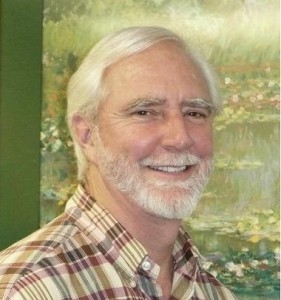Biographical Sketch | Biographical Data | Brief History | Professional Objectives | Education | Positions Held | Honors & Awards | Service
Biographical Sketch
Dr. William A. Gardner (PhD EE, MS EE) has been in the profession of signal processing research and development for communications and reconnaissance since 1972. He is Professor Emeritus, University of California, Davis, and has authored three books, Introduction to Random Processes with Applications to Signals and Systems, Macmillan, 1985 (second edition, McGraw-Hill, 1989), Statistical Spectral Analysis: A Nonprobabilistic Theory, Prentice-Hall 1987, and The Random Processes Tutor: A Comprehensive Solutions Manual for Independent Study, McGraw-Hill, 1989 (Re-release, 2014—see Publications herein). He is the editor of Cyclostationarity in Communications and Signal Processing, IEEE Press, 1994, and he is the author or co-author of chapters in four books. He holds thirteen patents, is the author of over 100 peer-reviewed research papers, and has given many invited lectures at university and industrial research laboratories.
Dr. Gardner received the international Best Paper of the Year award from the European Association for Signal Processing in 1986 for the paper, “The spectral correlation theory of cyclostationary time-series,” the 1987 Distinguished Engineering Alumnus Award from the University of Massachusetts, and the international Stephen O. Rice Prize Paper Award in the Field of Communication Theory from the IEEE Communications Society in 1988 for the paper entitled “Signal interception: A unifying theoretical framework for feature detection”. He was nominated for the 1998 international IEEE Graduate Teaching Award and the 1999 IEEE Medal for Pioneering Contributions in Signal Processing. Professor Gardner was elected to Fellow grade in the institute of Electrical and Electronics Engineers in 1991 “For contributions to the development of time-series analysis and stochastic processes with applications to statistical signal processing and communication, and for contributions to engineering education.” He is a biographee in Who’s Who in the World and other biographical sources.
Dr. Gardner has been principal investigator for over fifty research awards totaling nearly $25 million between 1980 and 2010 from industry and from numerous federal research offices, including the Defense Advanced Research Projects Agency, the U. S. Office of Research and Development, the National Security Agency, the National Reconnaissance Office, the National Science Foundation, the Office of Naval Research, the Air Force Office of Scientific Research, the Army Research Office, the U.S. Army Communications Electronics Command Center, the U. S. Space and Naval Warfare Systems Command, the USAF Rome Laboratory, the USAF Wright Laboratory, the Republic of Singapore Center for Strategic Infocomm Technologies, Swiss Army TEMPEST/EMSEC Research Program, and the French National Institute of Applied Sciences. Dr. Gardner is considered to be the father of and the world’s leading authority on the theory and application of cyclostationary signals, and he organized and chaired the first international Workshop on Cyclostationary Signals (in 1992) invited by the National Science Foundation and cosponsored by NSF and the Offices of Research of the U. S. Army, Navy and Air Force. More recently, Dr. Gardner has been Principal Investigator on several programs to develop technology for cellular communications.
After transitioning to Professor Emeritus in 2001, Dr. Gardner increased his employment with Statistical Signal Processing, Inc (SSPI), which he founded 15 years earlier, from part time to full time, until he sold the firm’s intellectual property in 2011 on its 25th anniversary. SSPI, an applied research firm, employed many of Dr. Gardner’s current and previous graduate students, supporting their thesis research and postdoctoral work. From 2011 to 2013, Dr. Gardner was with Lockheed Martin Space Systems Company’s Advanced Technology Center as Research Scientist Senior Principal. Presently, he pursues independent research in the theory of signal processing, with application to radio astronomy; and he is more philosophically engaged with others in the more open ended subject of seeking ideas for mitigating the extent of mankind’s failure to implement the scientific method with fidelity—a well-documented pervasive failure with serious consequences that have been retarding scientific progress since mankind’s initial codification of the scientific method. A growing body of knowledge about this failure suggests that scientific revolution in the 21st century is inevitable if true science is to survive–a tenet of growing popularity in many fields of science (see https://www.plasma-universe.com/ and, for more popularized treatments, see https://www.thunderbolts.info/wp/ and http:/www.holoscience.com/wp/ for exposure of the impact this failure has had on Astrophysics—perhaps the least scientific of all fields of science, as it has been practiced for the last century). To put it concisely,
The human mind has created profound technology for scientific experimentation and data collection; but, as the engine of science, the mind often seems poorly qualified–naturally at odds with objectivity, often clouded by politics and economics, and drawn toward religious-like behavior in which beliefs are not differentiated from proven facts. This mostly unpublicized viewpoint echoes the sentiments of many great scientists from the past who, on the basis of their lasting contributions, we should pay some attention to.
More biographical detail is available at wikipedia.org/wiki/William_A_Gardner.





